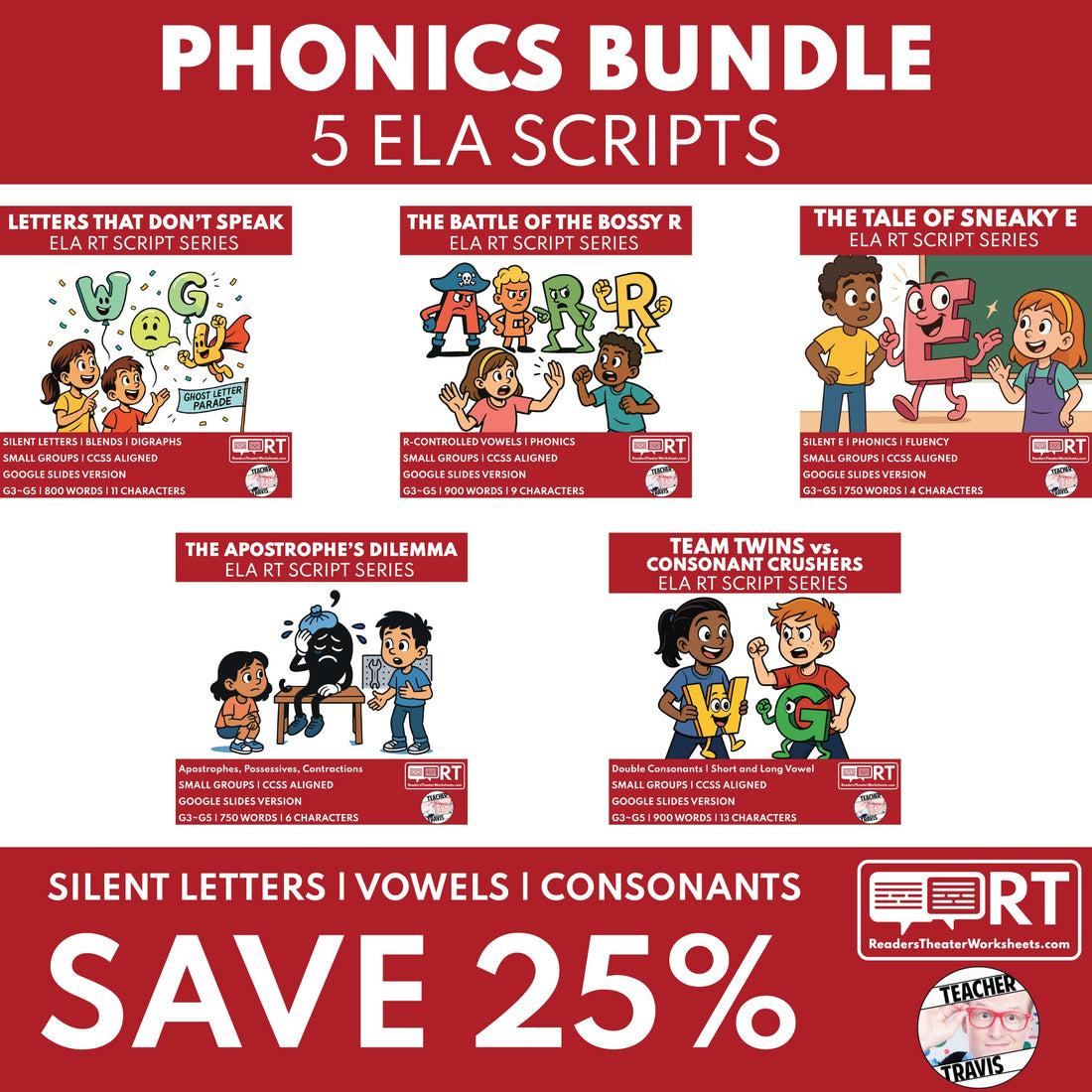
Phonics Readers Theater: Turn Sound Games into Reading Gains
Share
Struggling to squeeze explicit phonics practice into a packed literacy block? Ten-minute Readers Theater “sound stories” give students the repetition they need—without dull drills. Explore the Phonics Grades 3-5 Readers Theater bundle and try a free sample scene like “The Battle of the Bossy R.”
Why Focus on Sound Before Print?
- Foundation for Decoding – Children who can blend and segment phonemes read new words more accurately and fluently.
- Predictor of Long-Term Success – Growth in phonological-processing regions of the brain between kindergarten and Grade 3 strongly predicts later reading ability.
- Evidence-Based Intervention – Explicit sound-manipulation lessons benefit all learners, including those at risk for dyslexia.
Sound Skills in a Nutshell
Phonological awareness is an umbrella term covering big-to-small sound units—sentences, words, syllables, onsets/rimes, and individual phonemes. Phonemic awareness zooms in on those individual phonemes and requires students to isolate, blend, segment, add, delete, or substitute sounds.
10-Minute Daily Routine with Readers Theater
- Warm-Up (2 min) – Oral rhyme or alliteration chant (“Six silly snakes…”).
- Script Read (4 min) – Perform one page from a phonics play (e.g., long-vowel showdown in “Team Twins vs. Consonant Crushers”). Students highlight target graphemes as they read.
- Sound Mapping (3 min) – Use Elkonin boxes or coins to tap each phoneme from a key word in the script.
- Quick Transfer (1 min) – Students write the word, underline the vowel pattern, and read it to a partner.
Skill Progression Made Easy
| Week | Target Pattern | Featured Script |
|---|---|---|
| 1 | CVC Short Vowels | The Cat in the Cap Trap |
| 2 | Blends & Digraphs | Crash of the Smash Bros. |
| 3 | Bossy R | The Battle of the Bossy R |
| 4 | Long-Vowel Teams | Team Twins vs. Consonant Crushers |
| 5 | Diphthongs & Complex Vowels | Oi! The Noise Boils! |
Multisensory Boosters for Struggling Readers
- Use colored blocks to swap sounds (rice → mice).
- Pair movement with syllable claps to reinforce segmentation.
- Incorporate game-style phoneme chaining (“map → mop → cop”) for rapid manipulation practice.
What the Research Says
The National Reading Panel’s meta-analysis found that teaching students to manipulate phonemes yields “highly effective” gains in both decoding and spelling. Blending and segmenting practice, in particular, has a direct, measurable impact on future reading fluency. Readers Theater amplifies those gains by adding repeated reading and performance—two strategies shown to boost accuracy, rate, and prosody.
👉 Download the Phonics Readers Theater bundle today, or start with the free “Bossy R” sample to hear your class turn isolated sounds into confident, connected reading!
